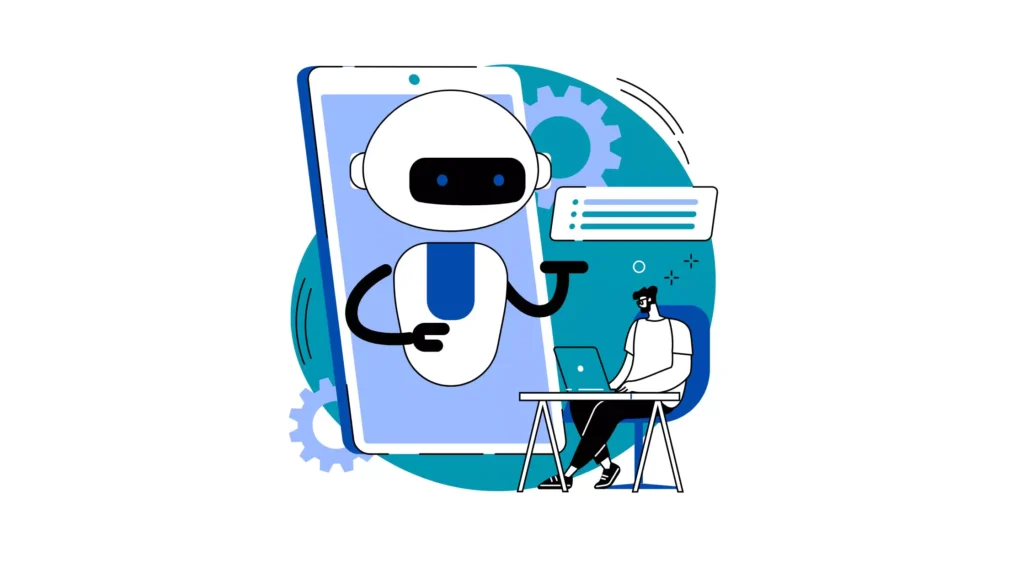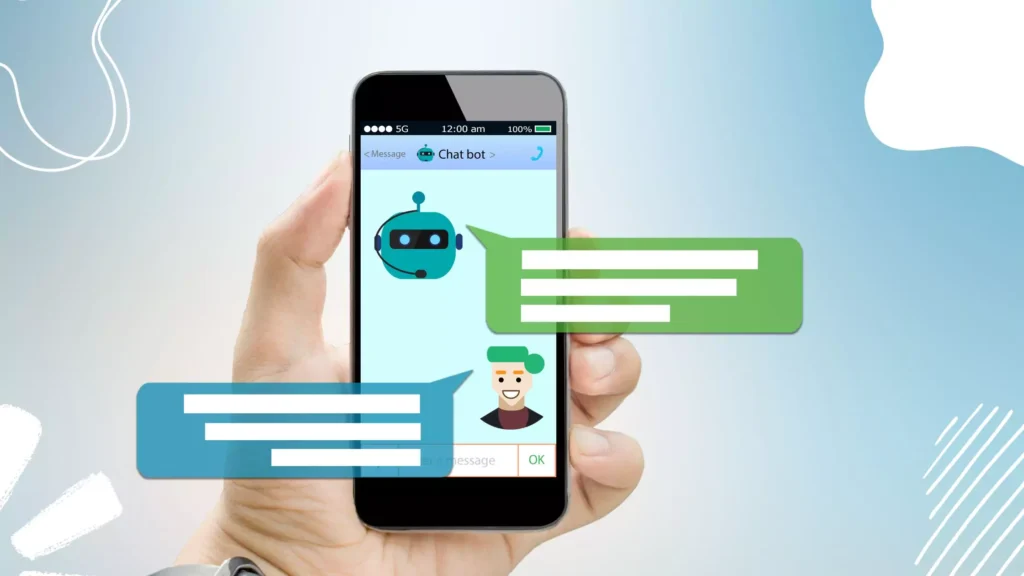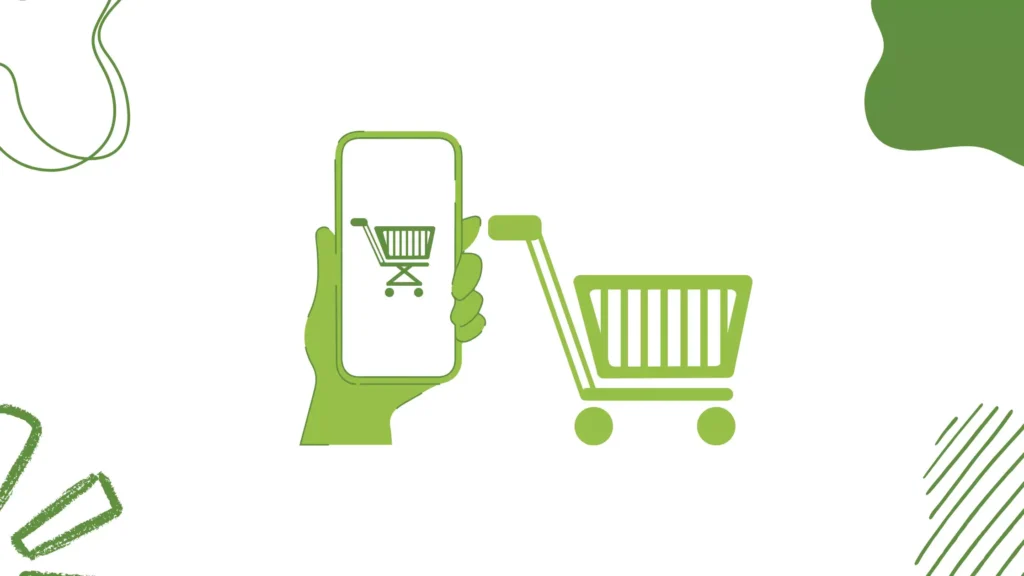Ever thought about how much you could be losing in sales because customers can’t get the answers they need quickly?
What if I told you there was a solution that could answer all their queries at any time, without breaking a sweat? That’s where the AI Chatbot for ecommerce comes in. In fact, 83% of customers expect immediate responses when contacting a business, and chatbots can provide that round-the-clock support (source).
These bots are taking online shopping to the next level, offering real-time customer support that’s fast, efficient, and always there.
In today’s article, let’s find out why every e-commerce business needs an AI chatbot. Further, we will go on to see 10 examples of real-world businesses that are already using AI chatbots to improve customer support.
What is an AI Chatbot For Ecommerce?
The AI chatbot is a web assistant that communicates with customers, like any human being. In e-commerce, they are major actors in customer service. They help with answering product-related questions, order tracking, suggesting items, and even guiding customers through checkouts. Short and snappy, they are your 24/7 untiring customer support team.
The Benefits of Using an AI Chatbot for E-commerce
Now, why should you even consider adding an AI chatbot to your business? Let’s break it down.
1. 24/7 Availability
Customers want answers fast! Whether shopping at 4 am or during those crazy holiday hours, the e-commerce chatbot ensures they get exactly what they need in real-time without having to wait around.
2. Increased Efficiency
AI chatbots can handle numerous customers’ inquiries all at once. They are faster than any human customer service representative and never get tired. This will free your team to work on higher-value issues while letting the chatbot do the often routine questions and functions.

3. Enhanced Customer Experience
People enjoy customised services, and AI chatbots deliver exactly that. Drawing from data collected during previous communications, a chatbot can offer a personalised response in recommending products to match customer requirements and make them feel acknowledged and heard. This feature not only boosts customer satisfaction but also encourages them to come back and shop with you again.
Key Features of Efficient E-commerce Chatbots
To get the most out of your e-commerce chatbot, you need to incorporate some key features into it. The features will ensure that your chatbot not only answers questions but also enhances the overall shopping experience.
1. Natural Language Processing
Natural Language Processing is the ability of a chatbot to understand and respond in a manner that best mimics speaking with a real person. Instead of recognising just specific words, NLP can allow the chatbot to understand what is meant by a customer when they send a message, even if that customer utilises casual speech or slang.
In this manner, interactions become smoother and more natural, while the chatbot is allowed to help with anything from advanced inquiries down to simple ones.
2. Integration of E-commerce Platform
A good chatbot doesn’t operate in a vacuum-it links directly into the tools your business is already using. That means the chatbot can hook right into your e-commerce platform, CRM, and even payment systems, making it able to track orders, manage inventory, process payments, and even refunds with no human intervention. If anything, that would make the chatbot a real extension of your team.
3. Customisation
Of course, not every business runs exactly the same, so your chatbot should reflect your personality and voice. What’s great about the best chatbots is they can be fine-tuned, even changing the tone, language, and how the chatbot interacts with customers.
Want a fun, casual bot? Or are you looking to create a formal, professional one? It’s all customisable to suit your business style. All this personalisation allows the customer to deal directly with your brand and not some sort of generic tool.
Real-Life Examples of AI Chatbots in E-commerce
Let’s take a look at some businesses already powering AI chatbots to enhance customer support and raise the stakes of sales.
1. Shopify chatbot
Shopify’s chatbot is a lifesaver when it comes to small businesses. Everything from frequent queries to order management on Facebook Messenger is taken care of. It thus allows customers to track their orders, query about products, and get personalised recommendations without requiring them to wait for a human.
2. H&M Chatbot
The chatbot of H&M is any fashion lover’s dream: the assistant helps customers find their perfect garment, checks stock status, and even makes outfit suggestions. This personalised experience has contributed to H&M reducing returns and improving customer satisfaction.
3. Sephora Virtual Artist
Sephora’s AI chatbot takes the personal touch to the next level where the customer can virtually try makeup, get personalised product recommendations, and even usage tips all in one place. This, apart from creating a better experience for the customer, leads to more sales too.
4. Zalando’s Chatbot
The chatbot at Zalando finds fashion items for users based on their style. This is very beneficial during peak seasons when the calls of customer support get backed up. Since this chatbot has guided customers with returns and also responded to various queries, it has made a significant impact in terms of customer satisfaction.
5. Domino’s Pizza Bot
Even pizza delivery has joined the chatbot party. Domino’s Pizza Bot lets customers order their favourite pizzas through Facebook Messenger or even Alexa. It remembers your past orders and suggests some cool deals, so ordering pizza is quicker and easier than ever.
6. eBay ShopBot
eBay’s ShopBot helps users find products through a series of questions about what they are looking for. It learns their preferences and suggests items that fit their needs. That personal touch has enhanced both engagement and sales on eBay’s platform.
7. ASOS Style Match
ASOS allows a chatbot feature for customers to find clothes by uploading a picture of any item they like, and then it looks for similar items from its inventory. This unique feature increases customer satisfaction, which also drives sales.
8. Lowe’s Bot
Lowe’s introduced a chatbot, which guided DIYers through home improvement projects. This chatbot advised and located products for customers, and answered questions about availability, and other delivery options. Therefore, Lowe’s can make the experience of its customer base even more convenient.
9. KAYAK Chatbot
Kayak’s chatbot books flights, hotels, and car rentals for travellers by asking only a few questions. It can notify customers about personalised deals regarding travel and confirm their booking to keep them in the chat to book.
10. Burberry Chatbot
Burberry Chatbot engages in styling tips, finding products available in stores near the customer. The chatbot also interacts with people through fashion tips and suggestions that have bettered the whole shopping experience to increase footfall at physical stores.
Implementing an AI Chatbot for Your E-commerce Business
Now that you have seen how other businesses are benefiting from AI chatbots, it’s time to think about how one could work for you.
1. Choose the Right Chatbot
First, you need to know what you want your chatbot to do. Would it be receiving customer inquiries, processing orders, or generating leads? There are many types of AI chatbots; pick what will suit the needs of your business.
2. Customise Your Chatbot
Once you have chosen a chatbot, remember to make it your own. Tailor its tone, responses, and even its appearance to be a reflection of your brand’s personality. That makes the chatbot feel more organic to your business than just some tool.
3. Keep Improving
Your chatbot will only get smarter, especially if it’s powered by AI. Analytics and customer feedback do make your continuous improvement of its responses and functionality. The better your chatbot becomes, the greater the value it will be to your customers.

The Future of E-commerce Chatbots
AI chatbots are evolving fast, and there are some exciting trends to look out for.
1. Voice-Activated Chatbots
It has revolutionised voice assistants like Siri and Alexa. Soon, e-commerce will also be flooded with voice-activated chatbots, meaning customers will be able to give orders or ask any questions verbally.
2. Hyper-Personalisation
With more advanced AI, the bots will also be able to extend highly personalised experiences. Think about a chatbot that will most definitely tell you what products to buy, considering your browsing history, past purchases, and even your mood. The immediate future of chatbots creates a very personalised way of shopping.
Conclusion
In e-commerce, AI chatbots are no longer a luxury; they’re a necessity. From offering 24/7 customer support to delivering personalised shopping experiences, they’ve become an integral component of the e-commerce online business. If you still aren’t leveraging the power of an AI e-commerce chatbot, this is just about the perfect time to do so. Your customers will be thankful; your business, too, will benefit from doing so.





